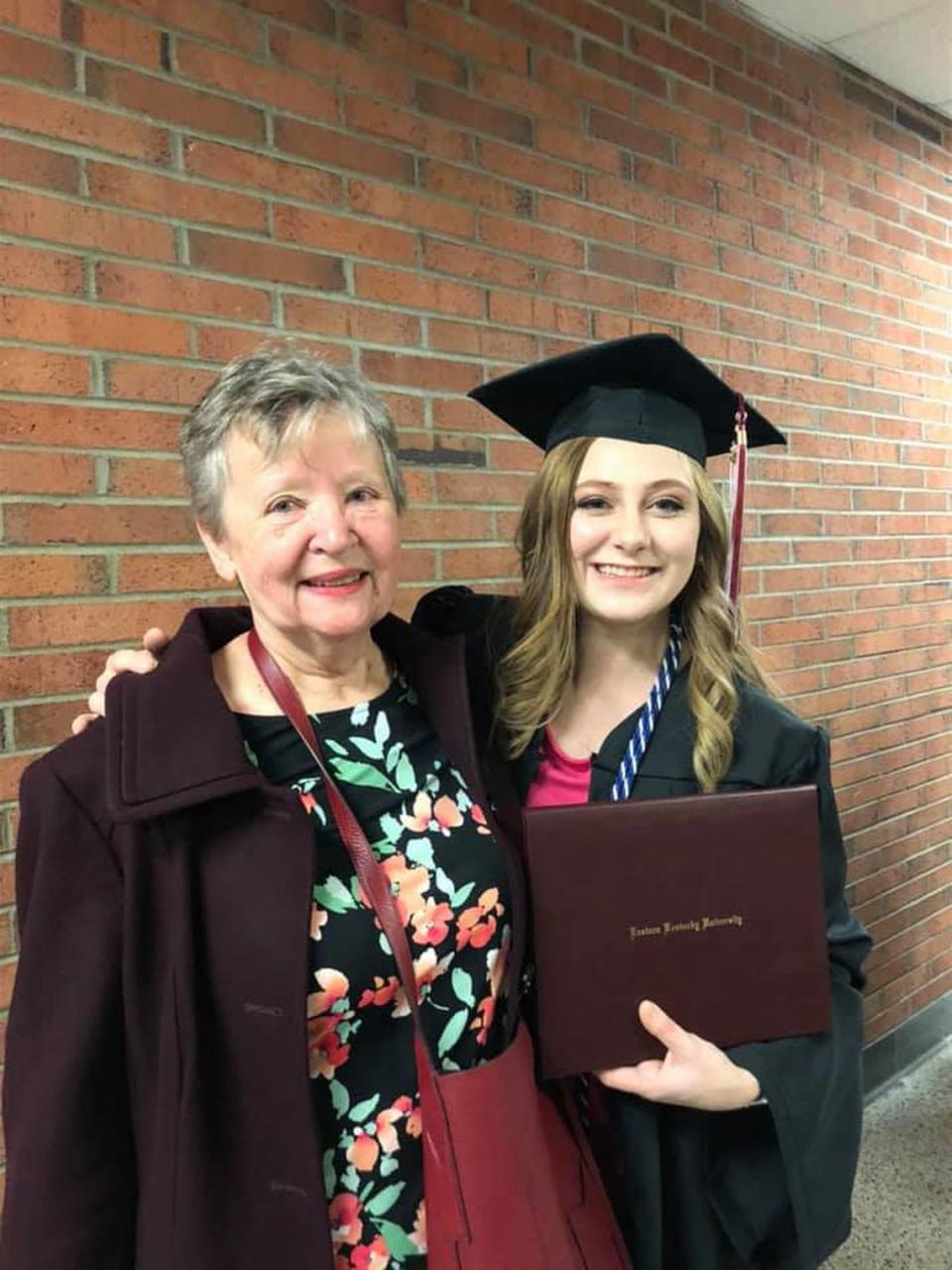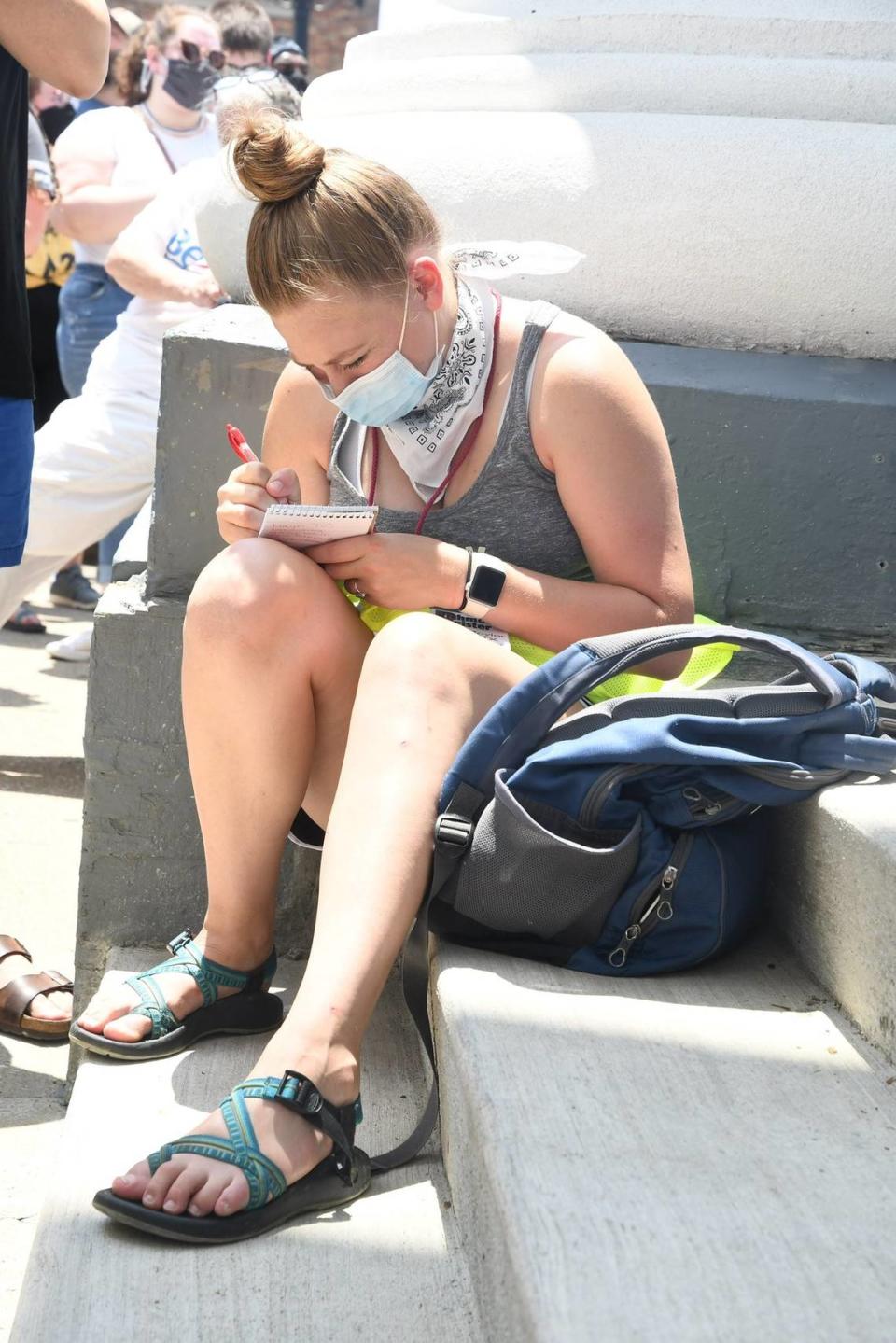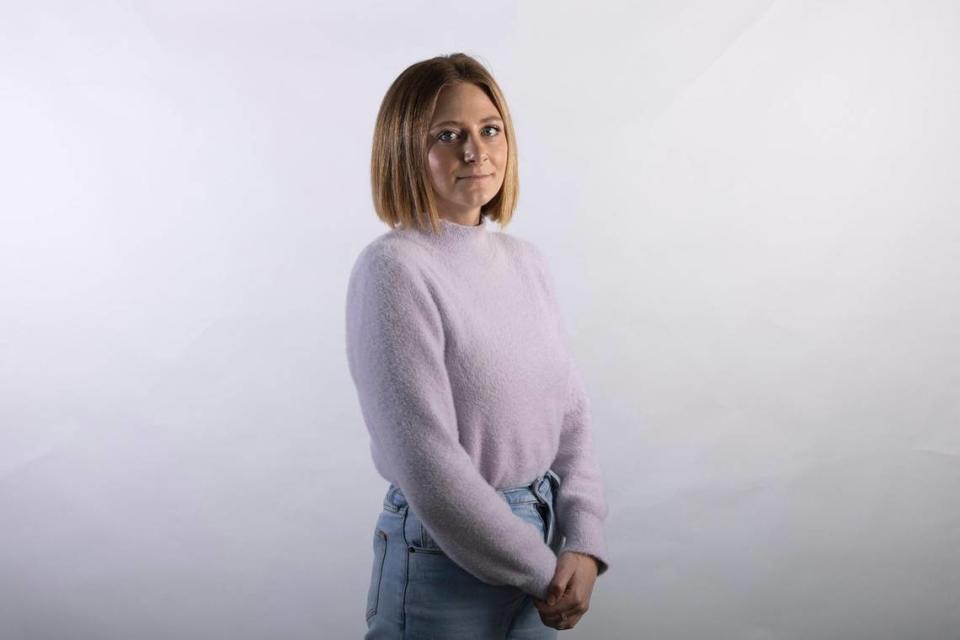Get to know reporter Taylor Six: How journalism helps me tell stories for vulnerable Kentuckians
Editor’s note: Since 1870, the Herald-Leader has been a part of Lexington’s history. Its headlines, stories and photos have defined life here and across Kentucky. But who generates that content? “Behind the Byline” is an occasional series that introduces the journalists whose work appears in our print editions and on Kentucky.com. You’ll learn we’re more than reporters, photographers and editors. We’re also your neighbors and are proud to serve Kentucky readers. Today, meet Taylor Six, our criminal justice reporter.
Some of my earliest memories are with my paternal grandmother, Barbara. I recall her teaching me how to read and sparking a creativity in me at a young age through acting, writing and playing dress up.
She used to travel from her previous home in Oconto, Wisconsin, for visits and would always take me to Joseph Beth Booksellers, where she would buy me children’s books — typically “Junie B. Jones.” She would buy a newspaper, and would also be toting around her own papers and notes for stories she was writing.
A writer herself, my grandma Barb was fond of feature writing and sharing her own experiences through freelance publications. It was what we bonded over. Her car was littered with clippings, magazines, notes and pens (along with coffee and food stains). It wouldn’t be but a few years until my own car was in the same condition.
When I left home for Eastern Kentucky University, there was a news writing and reporting class that piqued my interest. I failed the class due to my lack of prioritization in schooling freshman year, but my professor said I showed promise — despite failing her class — and to try again.
I did, and I passed. I began working for the school’s newspaper, the Eastern Progress, and taking required classes for a degree in journalism. Before I knew it, it was my junior year and I decided to commit myself to a path of advocating for the Fourth Estate.

Life after graduation, navigating COVID in journalism
After graduating from college in 2018, I had a job lined up at The Richmond Register as the government reporter covering Richmond City Council, Madison County Fiscal Court and Berea City Council. Admittedly, I had no idea what I was doing at first, but I typically find that I thrive in chaos.
At the time, the paper had three reporters and an editor. The other reporters were close to my age and covered education and crime beats. That lasted for about a year before COVID-19 hit and my feet were put to the fire once again.
Our newsroom and advertising staff dwindled dramatically. Money was tight, and psychical newspaper publication lessened. I was no longer covering just local government, but every event that I needed to get to since there were now only two of us. Almost to the day that the COVID-19 shutdown was declared, my editor accepted another job and left us scrambling to determine how we could continue.
Anyone who says nothing happens in Madison County is severely mistaken. There were days I was covering parades, meetings, working on enterprise stories and other events within hours of one another.
Oh, and did I mention we were in the middle of a pandemic?
After writing what was required to publish in the next day’s paper, I sometimes had to design the paper, edit the pages and even deliver copies.

I loved it for a while. I was super in tune with the community, a place where people really loved one another, deeply. I was learning about topics I hadn’t ever thought about before — how much roads cost, zoning for a new restaurant, how tax dollars work, struggles that local farmers face.
I told people’s stories, and help in a way that I thought was beneficial to others who needed to hear those stories. Journalism was my way to leave something behind and document history as it unfolded.
But the non-existent work-life balance, among other factors, became too much for me. I had resigned to leave journalism altogether when the universe had other plans, and I got a notification on Indeed.
The Herald-Leader was looking to hire a crime and courts reporter, and I thought, “Wouldn’t that be the dream?” I grew up familiar with the paper and longed to be in a different environment. I decided to apply, with little thinking that I would actually get the job. But again, the universe had other plans.

Adjusting to crime and courts
I was happy to be back home working in the city I grew up in. I was a bit nervous, too, because my life had been centered around the happenings in Richmond for more than five years, throughout my early adulthood.
As far as understanding crime and courts, well, I felt out of my comfort zone. As a person in long-term recovery from alcohol, I really had a stigma about whether I was the right person to do the job. I waged an internal war over this for the first six months of my time at the Herald-Leader.
However, through a lot of soul searching and talks with my dad (my hero), I found that I was the person to take on the job. In a society and criminal legal system that often seems designed to criminalize people in addiction, I knew that I could show a sense of compassion for victims and suspects.
Whether it’s in talking with an attorney, a defendant, or just another person on the street, I can meet them where they are at through my own personal experiences. I strive to use that to break free of my own negative perception of myself and the ability to do my job. I learned that what I perceived as a weakness could be used as a strength to help some of Kentucky’s most vulnerable.
I wouldn’t know it as a journalism student, but the same career that I gave so much of my life to, helped restore me to sanity.

